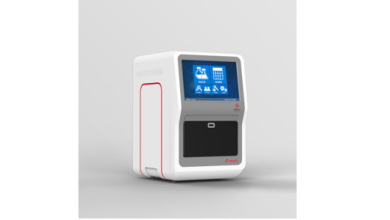The Importance of Emotional Intelligence and Self-Awareness in Mental Health Recovery

Emotional intelligence (EI) plays a crucial part in mental health recovery, particularly for those overcoming substance abuse and addiction. Understanding emotions and managing them effectively can lead to a stronger recovery process. This blog post explores how emotional intelligence fosters self-awareness in recovery and enhances overall well-being.
What is Emotional Intelligence? The Key to Recovery
Emotional intelligence refers to the ability to perceive, understand, manage, and express an emotion effectively. Researchers suggest that high emotional intelligence is essential for successful recovery from addiction and other mental health challenges. Individuals with strong emotional intelligence can recognize their own emotions, empathize with others, and navigate complex emotional states.
Self-Awareness in Recovery: The Foundation of Emotional Intelligence
Self-awareness, and being able to understand emotions, is the cornerstone of emotional intelligence. By building self-awareness, individuals can recognize their emotions and understand how these feelings influence their thoughts and behaviors. This awareness allows for better self-reflection and helps in recognizing patterns that may contribute to relapse or emotional distress.
Developing self-awareness involves assessing one’s emotional abilities and recognizing physical sensations related to emotional states. This skill is vital in addiction recovery, as it helps individuals identify triggers and manage stress effectively.
The Role of Self Control to Help You Manage Emotions
Managing emotions is another critical aspect of emotional intelligence. Individuals who can control their emotions are better equipped to handle stress and changing circumstances, leading to improved problem-solving abilities. A strong sense of self-control helps in navigating difficult situations without resorting to substances as a coping mechanism.
Emotional intelligence tests can help individuals gauge their emotional quotient (EQ) and identify areas for improvement. These tests often measure emotional awareness, emotional perception, and other emotional competencies that contribute to a person’s overall ability to manage emotions effectively.
Emotional Understanding: Recognizing the Emotions of Self and Others
Emotional understanding is essential for relationship management in recovery. Emotionally intelligent people can understand not only their own feelings but also those of others. This ability fosters better relationships, which are crucial for support during recovery at an outpatient drug rehab center in Massachusetts. Individuals with a high EQ are more likely to communicate effectively with co-workers, family members, and peers, leading to healthier interactions and less conflict.
Understanding emotions also involves recognizing strong emotions, which can be overwhelming during the recovery process. By developing emotional awareness, individuals can acknowledge these feelings without being consumed by them, allowing for healthier coping strategies.
How to Build Self Awareness in Recovery: The First Step
Building self-awareness is the first step toward developing strong emotional intelligence. Self-reflection allows individuals to evaluate their feelings, thoughts, and behaviors, leading to a deeper understanding of their emotional landscape. This process can enhance self-confidence, as individuals become more secure in their ability to manage their emotions and navigate challenges.
In daily life, applying emotional intelligence can lead to better job performance, improved relationships, and overall mental health. Individuals who practice emotional understanding and awareness are more equipped to handle the pressures of life, leading to greater well-being and recognizing emotions.

The Benefits of a High Emotional Quotient in Addiction Recovery
Developing a high emotional quotient (EQ) can be transformative in addiction recovery. A strong EQ helps individuals navigate emotions, build healthy relationships, and face daily challenges with resilience, ultimately promoting a more balanced and fulfilling recovery journey. Below, we dive into the specific ways a high EQ supports recovery.
1.) Better Relationships
Emotionally intelligent individuals tend to cultivate stronger, more meaningful relationships. A high EQ includes the ability to empathize with others and effectively communicate, which fosters trust, respect, and mutual understanding. In addiction recovery, these qualities are especially beneficial as relationships with family, friends, and support groups often need repair and rebuilding.
- Empathy and Connection: Those with high emotional intelligence can more readily recognize and appreciate other people’s feelings. This ability to empathize encourages open, judgment-free conversations, which are crucial for healing relationships strained by addiction.
- Conflict Resolution: With better emotional awareness, individuals are equipped to handle disagreements more calmly, allowing for peaceful conflict resolution and deeper understanding. This leads to improved social support systems that can help sustain long-term recovery.
2.) Better Problem Solving
In addiction recovery, challenges often arise that require quick, effective decision-making. A high EQ empowers individuals to approach problems with a clear mind and an empathetic perspective, aiding in the creation of sustainable, healthy solutions.
- Clear Thinking Under Pressure: Strong emotional intelligence enables individuals to manage heightened emotions and think critically, even in high-stress situations. This ability minimizes impulsivity and reduces the risk of relapse when difficult situations or cravings arise.
- Adaptability and Resilience: Emotional intelligence helps individuals adjust to changing circumstances, building resilience in the face of setbacks. This adaptability is key to maintaining progress in recovery, as unexpected challenges can often derail the journey if not managed effectively.
3.) Better Stress Management
High emotional intelligence enhances an individual’s ability to manage stress, which is crucial for maintaining stability in addiction recovery. Emotionally intelligent individuals can recognize when they are becoming overwhelmed and employ healthier ways to cope with stress, such as mindful breathing, exercise, or reaching out for support.
- Reduced Relapse Risk: By using stress-management techniques, individuals with a high EQ are less likely to turn to substances when faced with stress. They can recognize triggers and implement alternative coping mechanisms that support their recovery goals.
- Enhanced Physical Health: Chronic stress can negatively affect physical health, but those with strong emotional intelligence are more likely to manage stress proactively, leading to improved overall wellness. Healthier bodies contribute to stronger recovery foundations, reinforcing physical and mental stability.
4.) Better Self-Awareness
Self-awareness is a foundational pillar of emotional intelligence. Those with a high EQ are adept at identifying and understanding their own emotional states, which is essential for self-control and healthy decision-making in recovery.
- Informed Decision-Making: With heightened self-awareness, individuals can identify and avoid triggers, make informed choices, and stay aligned with their long-term recovery goals and prevent relapse. Recognizing emotions as they arise helps in refraining from reactive behaviors that might otherwise lead to relapse.
- Empowerment Through Reflection: Self-reflection promotes personal growth, as individuals can objectively evaluate their progress, learn from setbacks, and celebrate achievements. This process builds self-confidence and reinforces a positive self-image, which are crucial for a successful recovery journey.
Overall, a high emotional quotient is a valuable asset in addiction recovery, supporting improved relationships, effective problem-solving, stress management, and self-awareness. Cultivating these skills enhances the likelihood of sustained recovery and empowers individuals to lead healthier, more fulfilling lives.
An Emotionally Intelligent Person is Self- Aware and Can Manage Their Own Emotions
In conclusion, emotional intelligence is an essential skill for anyone in the recovery process. By developing self-awareness, managing emotions, and understanding both their own feelings and those of others, individuals can enhance their emotional competencies and improve their overall mental health. Embracing emotional intelligence not only aids in addiction recovery but also promotes long-term well-being and resilience in facing life’s challenges.





